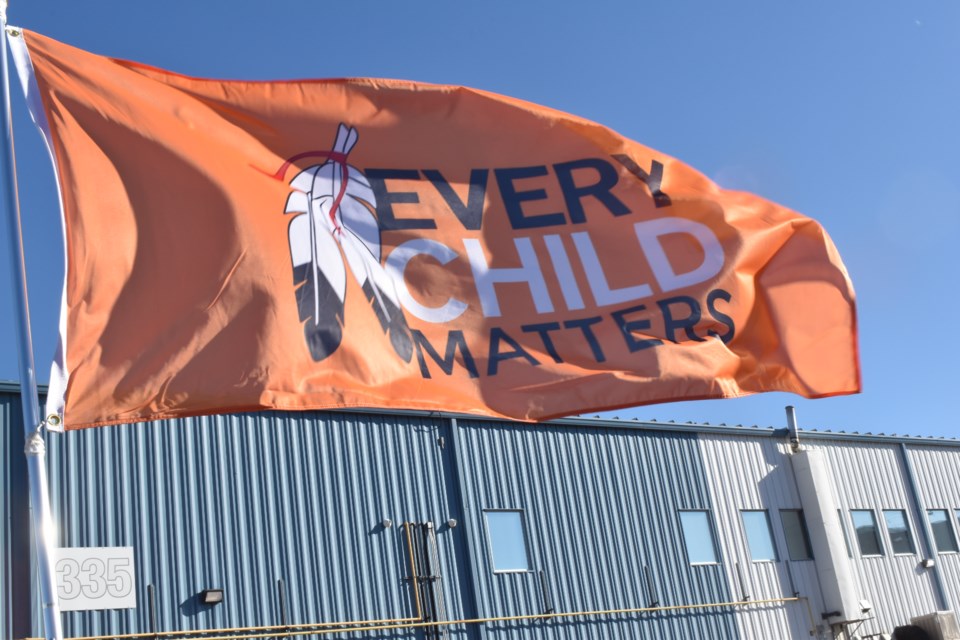SASKATOON—Ahead of the National Day for Truth and Reconciliation, Saskatoon Tribal Council (STC) Chief Mark Arcand is challenging everyone, especially governments, businesses, and organizations, to embrace the message of September 30, the day that commemorates the impact of one of the darkest periods in Canada’s history.
A memorial walk was held at the STC office to honour those impacted by residential schools. The STC is also organizing a powwow at the SaskTel Centre on Sept. 29 and 30.
First Nations communities across the country will have a busy weekend as they honour the survivors of Indian residential schools, a system introduced and funded by the federal government to assimilate Indigenous children into Western culture, preventing them from speaking their language and practising their traditions.
Survivors will share their stories and discuss the impact and trauma from their experiences of being forced by the Canadian government to attend residential schools, which were operated by Roman Catholic, Anglican, United, and Presbyterian churches. The day also pays tribute to those who never returned to their families and Indigenous communities.
Arcand told SaskToday that September 30 is not an ordinary day for First Nations peoples, but a time to reflect on the dark chapters of Indigenous history in Canada and the harms that have been inflicted on Indigenous people, from residential schools to colonialism, and everything in between that has affected their lives since their ancestors signed treaties with the government. However, he emphasized that one day won't resolve these historic problems.
“September 30 is the National Day for Truth and Reconciliation. But it should not just be one day a year. Truth and reconciliation should be 365 days a year, seven days a week, 24 hours a day, for the rest of our lives. To move forward, we must challenge and change the system and call out organizations and people trying to tokenize the National Day for Truth and Reconciliation,” said Arcand.
“I used to believe that Saskatoon was leading the way firmly, but it's failing. Some businesses and organizations are just putting up signs saying they support Truth and Reconciliation, but they don't have any outcomes or results. That's so disappointing because we [First Nations peoples] are not going to be used for the trauma of our people for their benefit, with nothing given back to improve the lives of First Nations people.”
He said that he sees only First Nations people promoting reconciliation, but it needs to be a two-way effort that involves cooperation between Indigenous and non-Indigenous communities. He added that some policies are a step backward from the Truth and Reconciliation Commission’s Calls to Action.
“We have a lot of people still suffering in 2024 from these colonial practices, and it continues to happen to this day in our city of Saskatoon. Reconciliation is failing. This has to be restarted with non-Indigenous organizations. People are asking: ‘How do we help? What does it take?’ This has to change asap [as soon as possible] so we can all work together under the treaty relationship,” said Arcand.
“The TRC Calls to Action are not being honoured by federal, provincial, or municipal governments. That is sad to see. We have too many people who are in poverty and homeless in our city of Saskatoon. We have too many government officials making rules and regulations and voting to take care of First Nations people when they should be investing in First Nations organizations to take care of our people,” he added.


